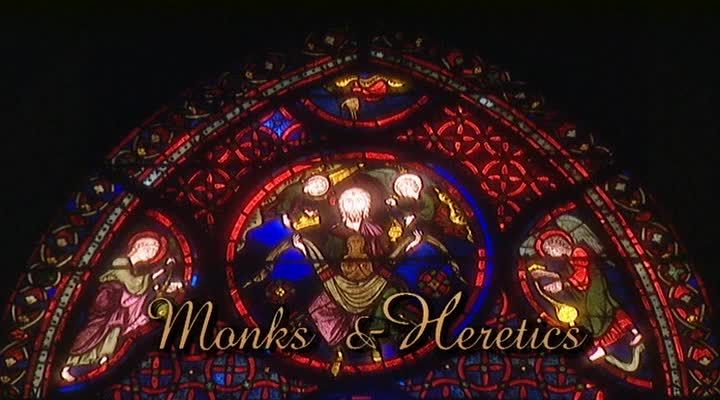Europe in the Middle Ages episode 2 – Monks and Heretics: As centres of missionary activity and science, monasteries made an important contribution to progress. Here, not only theology was taught and studied, but medicine, mathematics, astronomy, law and philosophy as well.
With the translation of the ancient scripts into Latin, this knowledge was introduced to the western world. However, the monasteries were not only places of devout worship and chastity – intrigues, power struggles and love affairs were not unknown to them either.
The Middle Ages were dark in the literal sense of the word: apart from precious wax, which hardly anyone could afford, there was in fact no other form of artificial light. Scholars begged God for light to enable them to pursue their studies. In fact, the ‘Dark Ages‘ between 800 and 1500 were a brilliant, dynamic time that paved the way for many achievements of our modern day world.
This four part documentary series throws light on an epoch of major importance. Experimental historical research illustrates the impact the Middle Ages had on the Modern Age. It tells of the scientific, technical and cultural achievements of the Middle Ages which paved the way for modernity and continue to influence western society to the present day. We follow four protagonists on their journeys throughout Europe, reviving the medieval world of knights, monks, peasants and burghers.
Europe in the Middle Ages episode 2 – Monks and Heretics
A monk is a person who practices religious asceticism by monastic living, either alone or with any number of other monks. A monk may be a person who decides to dedicate his life to serving all other living beings, or to be an ascetic who voluntarily chooses to leave mainstream society and live his or her life in prayer and contemplation. The concept is ancient and can be seen in many religions and in philosophy.
In the Greek language the term can apply to women, but in modern English it is mainly in use for men. The word nun is typically used for female monastics.
Although the term monachos is of Christian origin, in the English language monk tends to be used loosely also for both male and female ascetics from other religious or philosophical backgrounds. However, being generic, it is not interchangeable with terms that denote particular kinds of monk, such as cenobite, hermit, anchorite, hesychast, or solitary.




